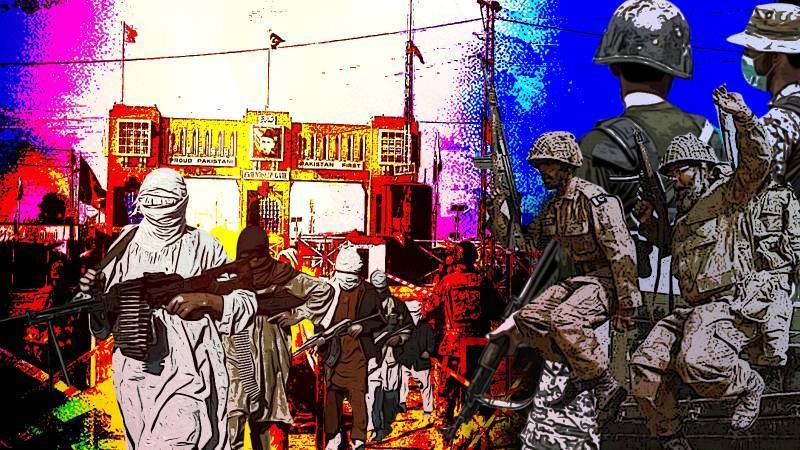
Pakistan has just witnessed one of its deadliest years in terms of casualties in its long-drawn war against terrorists and insurgents. The reports from multiple security think tanks indicate that around 95% of the violence took place in KP and Balochistan. The figures given by ISPR and independent researchers also don’t vary much, but they do call for a thorough review of policy as they speak for themselves: 521 terrorist attacks; 383 brave soldiers and 355 civilians were martyred while more than 50,000 IBOs were undertaken.
As these fatalities took place away from the political arena in Islamabad, hence they did not even make it to the mainstream media, and a discussion on possibly the most important security challenge seems to be missing completely at a time when it is much needed. Every country that has been an active stakeholder in the war against terrorism has drawn mechanisms to review its strategic calculus. There are public discussions and multiple stakeholders are taken on board to review the policy decisions taken in the past and their impact. The exercise is somehow seen in Pakistan to be either futile or one in which the military would end up getting blamed.
The reality, though, is far from it. These open conversations between the state and society help to create the requisite trust required to fight against these non-conventional threats. The intent of political and military leaders making or approving policy is not under question, but the effectiveness of these policies needs to be assessed. Many security analysts in the country have worked extensively on the subject for years and should be heard while making these decisions along with civil society. They may not agree with a particular approach, but disregarding all that they say might be counterproductive in the long run.
In this regard, it is also important to briefly analyse how we have reached this level of violence.
The Taliban after capturing Kabul concluded that they cannot leave their allies like TTP which has long been used to establish a buffer between them and Pakistan high and dry. There was also a strategic miscalculation at the end of Pakistan where the common perception at that time was that the Afghan Taliban would not support ‘anti-Pakistan’ activities of TTP and would help dismantle the group. It led to a series of negotiations initiated and supported by the political and military leadership that eventually ended up in the settlement of TTP remnants in the newly merged districts of KP.
The path to success would depend on the support that the military gets from the nation which seems to be unaware of the ‘silent war’ taking place or is too preoccupied with political polarisation to pay attention
This was possibly the biggest mistake in our counterinsurgency strategy. The principle of COIN as repeated in many manuals and created by David Galula is simple: win over the local population, create political incentives, and most importantly ensure the population that the violent group would not be able to come back. TTP was allowed to freely move in an area from which they were ousted, which had a lasting impact on the population. It must have led to immense demoralisation among those who helped our armed forces fight these elements by providing intelligence or by picking up arms against the terrorists.
The end goal of any conflict is through negotiations, but there needs to be a consensus on the rules of the game. The Constitution of Pakistan, the protection of the civilian population, businesses, and our way of life which the TTP sees as an ideological threat must have been the pre-conditions for any such talks.
It is also equally important to point out that the provincial government doesn’t seem to have taken ownership of these areas. The principle of clear, hold, and build applied in other cases was only successful when the governance improved and the local politicians worked with the military to create a unified plan of development. The PTI-led government in the province due to its longstanding soft corner for TTP has failed to do that over the years. It is never too late for course correction and the government elected with a two-third mandate must create development opportunities and give enough incentives to the local citizenry including their participation in decision-making.
Moving forward, it is becoming increasingly important for the Shehbaz Sharif-led coalition government in Islamabad to take the Parliament and the nation on board. Our people are dying on almost a daily basis while our soldiers are fighting valiantly against these groups and developing a holistic strategy should be the utmost priority of the government. The path to success would depend on the support that the military gets from the nation which seems to be unaware of the ‘silent war’ taking place or is too preoccupied with political polarisation to pay attention.

